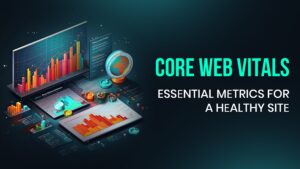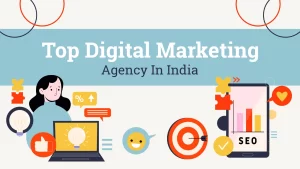In the ever-evolving landscape of digital marketing, Search Engine Optimization (SEO) has emerged as a crucial tool for businesses looking to establish a formidable online presence. The concept of SEO marketing revolves around enhancing your website’s visibility on search engines like Google, Bing, and Yahoo. When used effectively, SEO can significantly impact your business by attracting organic traffic and potential customers. In this article, we will explore the ins and outs of SEO marketing, offering valuable insights and actionable tips to help your business thrive in the competitive online realm.
SEO marketing is all about optimizing your online content to make it more appealing to search engines. This, in turn, leads to higher rankings in search results, ultimately driving more traffic to your website. But how does it work, and why is it so essential for your business?
- Keyword Research: Keywords are the foundation of SEO marketing. These are the words and phrases users enter into search engines when looking for information, products, or services. By identifying relevant keywords for your business, you can tailor your content to match what your target audience is searching for.
- On-Page SEO: On-page SEO involves optimizing individual web pages to improve their search engine rankings. This includes optimizing title tags, meta descriptions, headers, and content to ensure they align with your chosen keywords.
- Quality Content: Search engines prioritize websites that provide valuable and relevant content. Producing high-quality articles, blog posts, videos, and other forms of content can help establish your website as an authoritative source in your industry.
- Technical SEO: Technical SEO focuses on the behind-the-scenes aspects of your website, such as site speed, mobile-friendliness, and site structure. Ensuring your site is technically sound is essential for SEO success.
- Backlinks: Backlinks are links from other websites that point to your site. Quality backlinks can significantly impact your search engine rankings, as they indicate that other websites find your content valuable and worth referencing.
Creating a Solid SEO Marketing Strategy
To effectively use SEO marketing to market your business online, you need a well-thought-out strategy. Here are the key steps to get you started:
1. Define Your Goals: Begin by setting clear and measurable goals for your SEO efforts. Do you want to increase website traffic, boost online sales, or enhance brand visibility? Understanding your objectives will help you tailor your strategy accordingly.
2. Keyword Research: Invest time in comprehensive keyword research to identify the most relevant and high-performing keywords in your niche. Use tools like Google Keyword Planner, SEMrush, or Ahrefs to discover keywords with good search volume and low competition.
3. On-Page Optimization: Optimize your website’s on-page elements. This includes crafting compelling title tags, meta descriptions, and headers that incorporate your target keywords. Make sure your content is well-structured and provides value to your audience.
4. Quality Content Creation: Regularly produce high-quality, informative, and engaging content that resonates with your target audience. Address their pain points, answer their questions, and offer solutions. Content can come in various forms, including blog posts, videos, infographics, and podcasts.
5. Technical SEO: Conduct an audit of your website’s technical SEO aspects. Ensure your site is mobile-friendly, loads quickly, and is easy to navigate. Fix any broken links or issues with site structure. Search engines favor websites that offer a smooth user experience.
6. Off-Page SEO: Build a strong off-page SEO strategy by acquiring quality backlinks from reputable websites in your industry. Guest posting, influencer collaborations, and social media promotion can all help in this regard.
7. Monitor and Analyze: Regularly monitor your SEO efforts using tools like Google Analytics and Google Search Console. Analyze the data to track your progress and identify areas that need improvement. Adjust your strategy as needed based on the insights you gain.
8. Stay Updated: SEO is an ever-evolving field, with search engine algorithms constantly changing. Stay updated with the latest SEO trends and best practices to ensure your strategy remains effective.
9. Patience is Key: SEO marketing is not a quick fix. It takes time to see significant results, often several months. Be patient and persistent in your efforts, and the rewards will come.
10. Seek Professional Help: If you find SEO too complex or time-consuming, consider hiring an experienced SEO agency or consultant. They can provide expert guidance and ensure your strategy aligns with industry standards.
Measuring the Success of Your SEO Marketing
To gauge the effectiveness of your SEO marketing efforts, keep an eye on key performance indicators (KPIs). These may include:
- Organic Traffic: The number of visitors coming to your website through organic search results.
- Keyword Rankings: The positions your target keywords hold in search engine results pages (SERPs).
- Conversion Rate: The percentage of visitors who take a desired action on your site, such as making a purchase or filling out a contact form.
- Bounce Rate: The percentage of visitors who leave your site after viewing only one page.
- Click-Through Rate (CTR): The ratio of users who click on your link compared to the number of total users who view it.
- Return on Investment (ROI): The ratio of revenue generated from your SEO efforts to the cost of implementing those efforts.
By regularly analyzing these metrics, you can assess the impact of your SEO marketing strategy and make data-driven decisions to improve your online marketing efforts.
Conclusion
In the digital age, SEO marketing has become a fundamental component of any successful online business. By optimizing your website for search engines, you can increase your online visibility, attract organic traffic, and ultimately grow your business. Remember that SEO is an ongoing process that requires dedication and continuous improvement. By following the steps outlined in this article and staying informed about the latest SEO trends, you can harness the power of SEO marketing to effectively market your business online and achieve long-term success.










